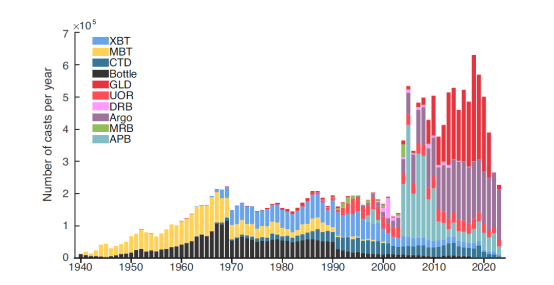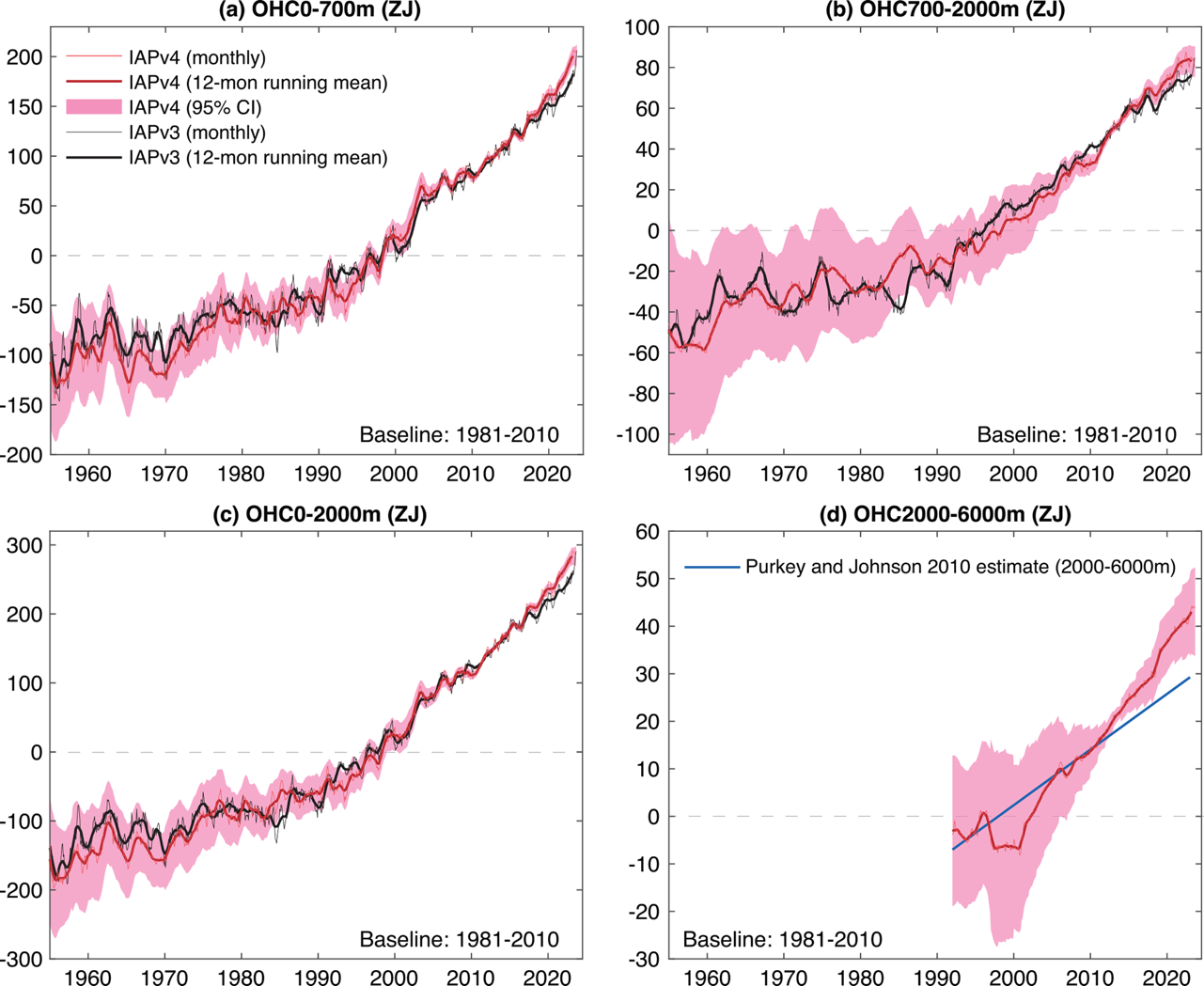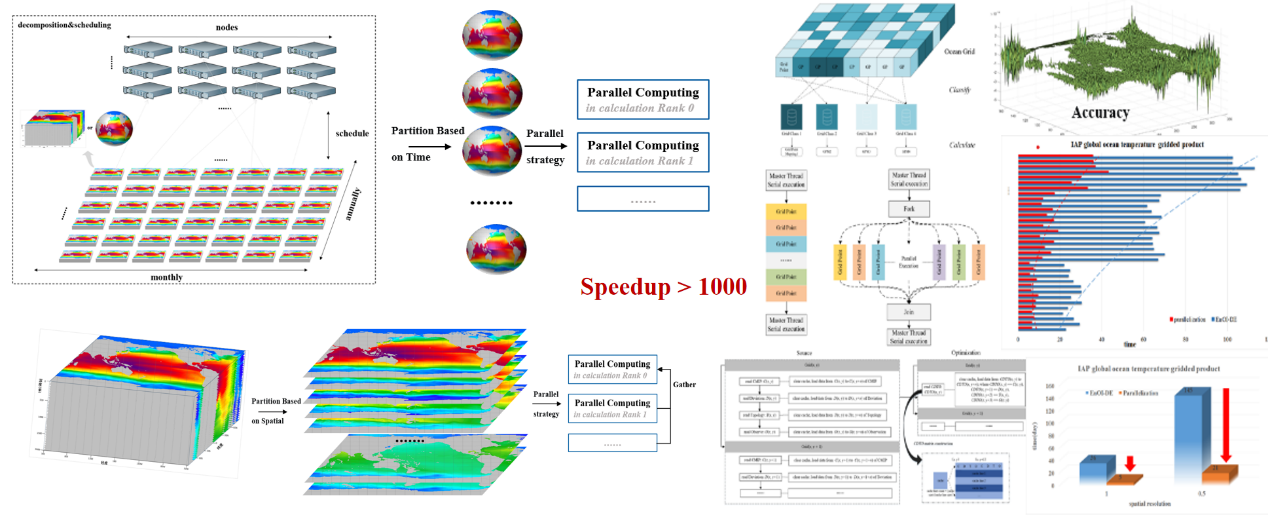News Release: Major Breakthrough in Global Ocean Observation Data Set Construction and Computation
A significant advancement has been achieved by our High-Performance Department in the construction and computation of a new generation global ocean observation dataset. High-quality datasets on ocean temperatures and heat content are crucial for oceanographic and climate science research, climate monitoring, and operational applications.
Engineers including Huifeng Yuan from High-Performance Department, collaborated with researchers from the Institute of Oceanology and Atmospheric Physics of the Chinese Academy of Sciences, the Istituto Nazionale di Geofisica e Vulcanologia (INGV) in Italy, and other institutions, leveraging the "ORISE" supercomputing system, they conducted rapid and efficient quality control and bias correction on ocean observation data. Their efforts culminated in the publication of a new version of the global ocean temperature profile observation dataset (CODC_v1) in 《Scientific Data》(Zhang et al. 2024), providing a robust data foundation for ocean and climate research.

A Schematic diagram of the change in the types and quantities of CODC-v1 temperature data over years
Building upon this foundation, the research team further improved the EnOI-DE method previously proposed by the Atmospheric Sciences Institute. This enhancement enabled more accurate spatial gridded reconstruction of the data. In collaboration with “Laoshan” Laboratory, the South China Sea Institute of Oceanology of the Chinese Academy of Sciences, the National Center for Atmospheric Research (NCAR) in the United States, and the University of Auckland in New Zealand, they officially released the fourth-generation global ocean temperature and heat content gridded observation dataset, IAPv4, in 《Earth System Science Data》(Cheng et al. 2024).

Time series of global ocean heat content calculated from the IAPv4 ocean temperature dataset
During this process, researchers from High-Performance Department developed a parallel computing framework (Yuan et al. 2024). This framework addresses the issues of limited portability and generally low computational efficiency faced by previous gridding methods across different computing platforms. Experimental results demonstrate that the framework can be quickly deployed on instruction set platforms such as X86, ARM, and RISC-V, and achieved varying degrees of computational acceleration during the construction of the IAPv4 global ocean temperature and heat content dataset using the "ORISE" supercomputing system. This pioneering exploration paves the way for real-time gridding of ocean observation data in the future. The research outcome has been accepted for publication in the parallel and distributed computing journal 《Journal of Parallel and Distributed Computing》(JPDC, CCF B).

A Schematic Diagram of Multi-scale Parallel Gridding Calculation Scheme for Ocean Observation Data
Related Achievements:
Yuan H., Cheng L., Pan Y., Tan Z., Liu Q., Jin Z., A multi-level parallel approach to increase the computation efficiency of a global ocean temperature dataset reconstruction, Journal of Parallel and Distributed Computing, https://doi.org/10.1016/j.jpdc.2024.104938.
Cheng, L., Pan, Y., Tan, Z., Zheng, H., Zhu, Y., Wei, W., Du, J., Yuan, H., Li, G., Ye, H., Gouretski, V., Li, Y., Trenberth, K. E., Abraham, J., Jin, Y., Reseghetti, F., Lin, X., Zhang, B., Chen, G., Mann, M. E., and Zhu, J.: IAPv4 ocean temperature and ocean heat content gridded dataset, Earth Syst. Sci. Data, 16, 3517–3546,https://doi.org/10.5194/essd-16-3517-2024, 2024.
Zhang, B., Cheng, L.*, Z. Tan, V. Gouretski, F. Li, Y. Pan, H. Yuan, H. Ren, F. Reseghetti, J. Zhu, F. Wang*: CODC-v1: a quality-controlled and bias-corrected ocean temperature profile database from 1940–2023. Scientific Data, 11, 666. https://doi.org/10.1038/s41597-024-03494-8, 2024.
